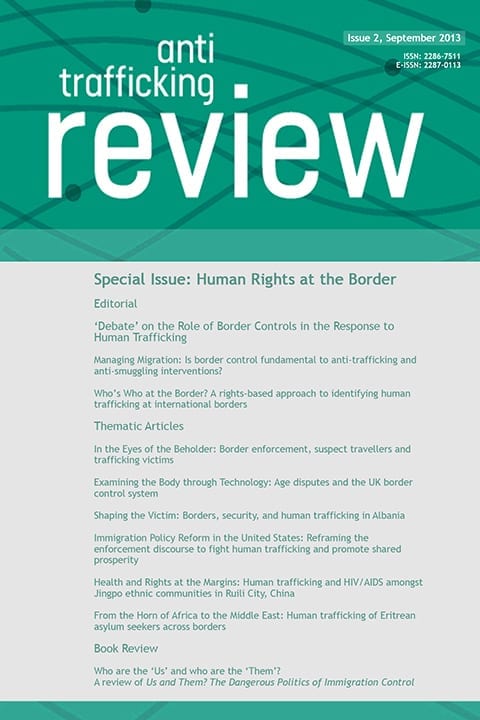
Managing Migration: Is border control fundamental to anti-trafficking and anti-smuggling interventions?
Over the last several decades, globalization and a growing concern over security issues, including transnational crime and terrorism, has shaped migration policies and the priorities of states. Transnational crimes, such as trafficking in persons and the smuggling of migrants, have been increasingly defined as border security problems. This article examines the extent to which border control is fundamental to anti-trafficking and anti-smuggling interventions, situating the debate within the wider nexus of globalization and the securitization of migration. Based upon their work with the United Nations Office on Drugs and Crime (UNODC) Regional Centre for Southeast Asia and the Pacific, the authors take the standpoint that given it is the sovereign right of each state to control its border and regulate migration, the human rights of migrants must be considered within this realpolitik. Clearly, though, this claim is highly political and contentious. In the article, we explore some of the tensions and contradictions that have emerged in this debate, and then develop an argument to suggest that it is possible for states to combine managed migration and strict border controls with the protection of human rights in the current context of globalization.
